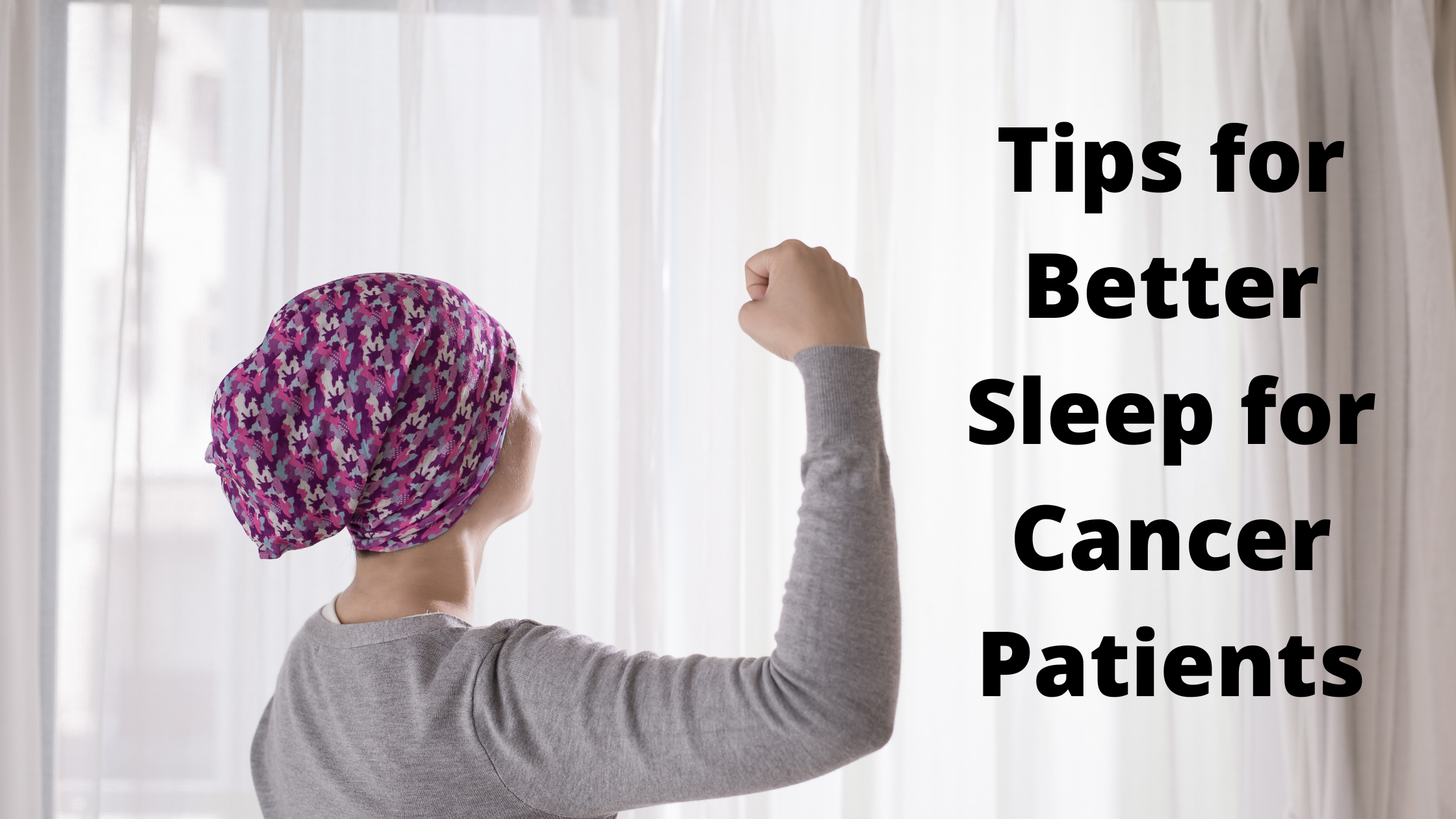
Patients with cancer have many changes to their lives depending on the type of cancer, treatment or management, and overall disability that they may face. In addition to the emotional pull that cancer has on their lives, these patients may also have trouble sleeping.
Sleeping is very important for the body, as that is the time when healing, repairs, and strength building take place. Sleep can also help with emotional management and mood regulation throughout the processes of cancer treatment. Here are a few tips for managing your sleep if you are a patient with cancer.
Sleep environment
Your sleeping environment is extremely important for maintaining good sleep. Depending on the state of your body, you may need different things to get a good night's rest. This could be a cooler room, because your medicine makes you hot, or maybe you need different mattresses and pillows because of pain points you may be experiencing.
Whatever adjustments you need to make, make them. In addition to those, make sure your room is completely dark and quiet. Use nightlights in case you are a frequent nighttime waker. This way, you don't have to turn on all the lights and completely disrupt your sleep. Your room should be very cool and extremely quiet. Finally, make sure that your room is primarily used for sleep. If it is used for anything else (working, hanging out, eating) then this can disturb your brain's association of sleep and the bedroom.
Maintain a routine
Sleep training is not just for babies. Everyone needs sleep training in the form of a routine because our brains like routines. They use specific sequences as ways to signal that it's time to go to bed. Your routine should consist of certain activities that are relaxing, including taking a bath, reading, journaling, meditating, yoga, and hanging out with friends. Things you should avoid include eating or vigorously exercising too close to bedtime, and excessive exposure to blue light from technology screens. If you do this every night, then you may find it easier to go to sleep every night.
Have healthy habits
Sleep is not just about what you do at night, but about what you do throughout the entire day. What you put into your body significantly influences your ability to get to sleep. You should avoid eating within two hours before bed so you are not kept awake by the digestive process.
Restrict liquids, especially alcohol and caffeine, which are both diuretics and will cause you to have to use the bathroom several times a night. Caffeine is a stimulant and will make it hard to get a good night's rest.
Foods containing tryptophan are great to eat at night because they are metabolized into serotonin, which can make the body sleepy. Turkey, bread, cereal, and milk all contain tryptophan and may be good things to eat at night.
Other helpful hints
There are other habits and activities you can do to help you get a good night's rest. Physical activity promotes healthy sleep. The best time for most people to exercise is 4-6 hours before bedtime. This makes you tired enough to go to bed, while also giving you time to cool down so you can actually fall asleep.
Reduce any anxiety that you may have at night by journaling about issues that worry you. Set aside worry time where you can focus on these troubles, and when that time is up, put those thoughts away so you can fall asleep with ease.
Cancer is a really difficult thing to deal with, and there are not many people who can understand unless they have dealt with cancer. You can interact and network with these individuals in small groups, online forums, and other gathering places. Reaching out to those who understand you may be a great way to reduce some of the loneliness and despair, or any other negative feelings that you may be experiencing.
If you or someone you know is experiencing significant sleep difficulties, please click the orange button below to take a free online sleep test and talk with one of our sleep health professionals.
https://uihc.org/health-topics/tips-better-sleep-cancer-patients#:~:text=During%20cancer%20treatment%2C%20the%20need,doctor%20about%20your%20sleep%20concerns.

